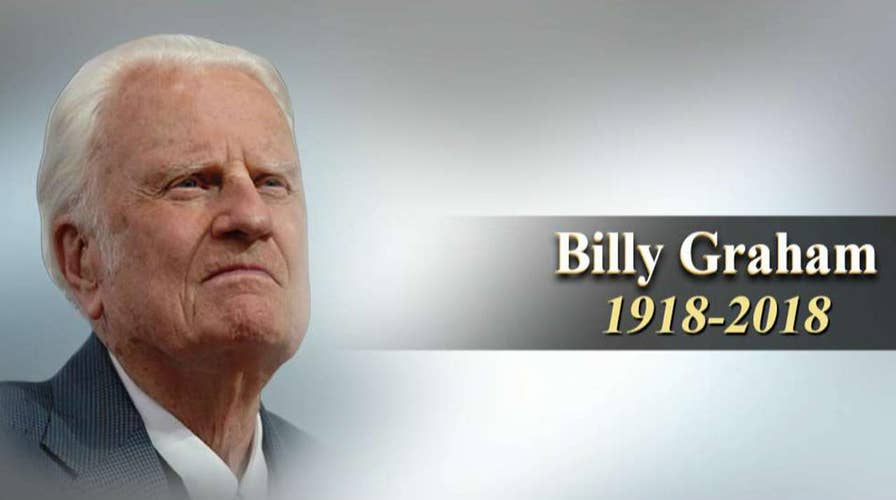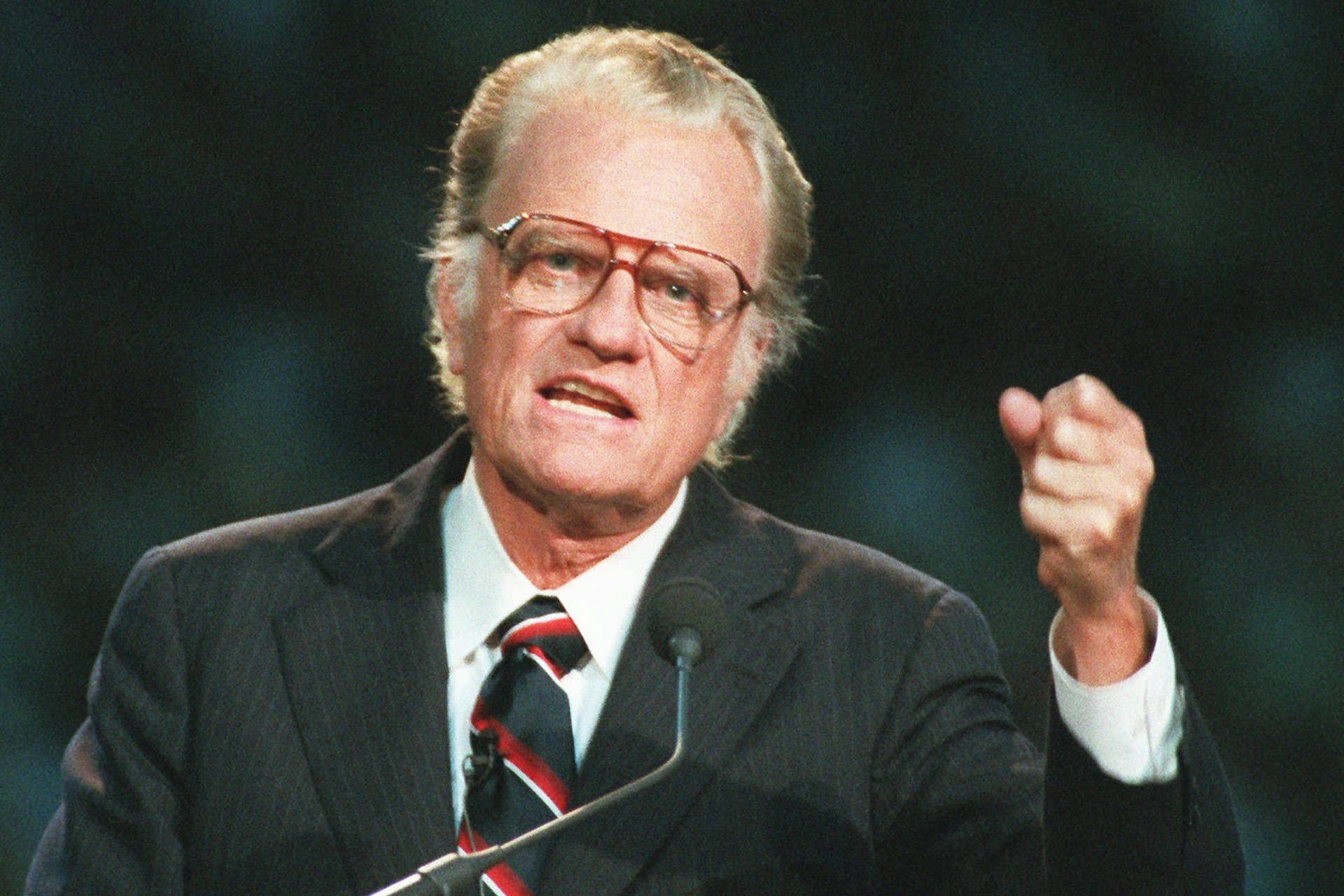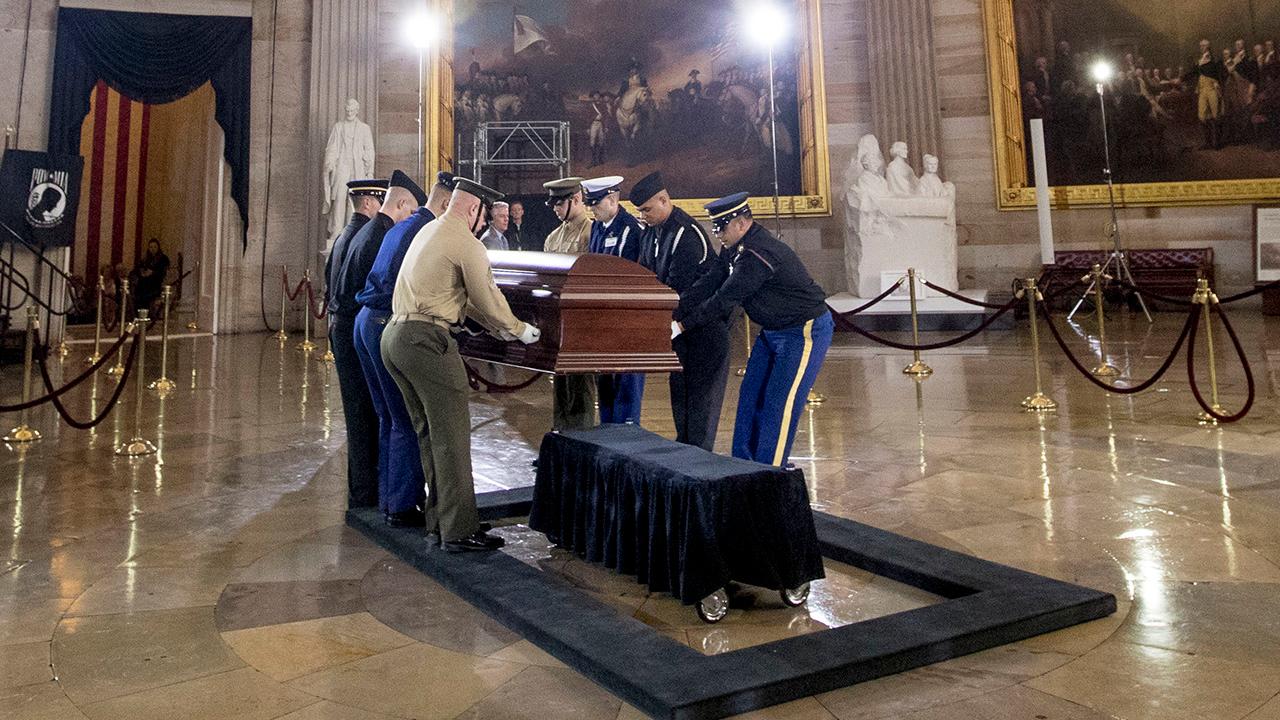Remembering Billy Graham: Evangelist dies at age 99
Hundreds of millions were touched by Graham's gospel message.
The life and legacy of the Rev. Billy Graham is being feted and lauded this week, and rightly so. Before being laid to rest on Friday in a simple pine plywood coffin made by inmates at the Louisiana State Penitentiary, the 99-year-old renowned evangelist is lying in repose in the Rotunda of the U.S. Capitol, an honor accorded to only 32 other people since 1852.
President Trump and first lady Melania Trump, most members of Congress and senior Trump administration officials all gathered to pay tribute to Graham in the Rotunda Wednesday morning.
The farm boy turned prolific preacher was an American icon, the nation’s beloved pastor through sunshine and storm. To many, he was the Protestant Pope. Even those who may have doubted what Graham believed never doubted the conviction and sincerity with which he communicated the Gospel of Jesus Christ.
Yet in the midst of memorializing the North Carolinian’s remarkable ministry, we would be wise to also acknowledge the mistakes that he admitted making throughout his 80-plus years of evangelistic outreach.
Why?
It takes a big person to reflect openly and candidly on one’s regrets, to not try and rationalize errors or minimize lapses in judgement. Yet that’s another characteristic that made Billy Graham so great. He wasn’t afraid to discuss his own imperfections and fallibility.
The preacher’s motivations weren’t masochistic in nature. They were ministerial. He proclaimed God’s truth, but he was God’s messenger – not a modern-day messiah. He admitted making mistakes because maybe in doing so, we might learn from him – and them – and not make the same ones all over again.
And so in death, like in life, Billy Graham’s vulnerability can teach, touch and transform our equally imperfect and sinful lives.
At the top of the Graham’s regrets was how he inadvertently prioritized his ministry over his family.
The long and storied life of Graham is a beautiful reminder that true greatness is found in humility and that every regret we may carry is ultimately redeemable, if not in this life then in the next.
“This is a difficult subject for me to write about,” Graham reflected in his memoir, penned when he was 78. “But over the years, the Billy Graham Evangelistic Association and the Team became my second family without my realizing it. Ruth (his wife) says those of us who were off traveling missed the best part of our lives – enjoying the children as they grew. She is probably right. I was too busy preaching all over the world.”
Graham once told a haunting story of driving up to his house after a lengthy road trip and seeing a child playing in the grass. He silently thought how cute she was and wondered to whom she belonged – only to soon realize that he had been gone for so many months that he no longer recognized his own daughter.
“I came through those years much the poorer psychologically and emotionally,” he reflected. “I missed so much by not being home to see the children grow and develop.”
He also had political regrets.
Reflecting on his friendships with several of America’s presidents, Graham acknowledged the nearly insatiable pull of partisan politics. Although he didn’t regret ministering to leaders of both political parties, he expressed remorse for allowing himself to be drawn too close to President Richard Nixon, who was later caught up in the Watergate scandal and resigned.
“Looking back I know I sometimes crossed the line, and I wouldn’t do that now,” Graham said in 2011.
And then there was race.
Although widely credited for his commitment to integrating the largely segregated Christian church in the South in the 1960s, Graham told The Associated Press in 2005 that he regretted not participating in civil rights marches with the Rev. Martin Luther King Jr.
“I think I made a mistake when I didn’t go to Selma,” an Alabama city where a major civil right protest took place in 1965, Graham said. “I would like to have done more.”
Billy Graham, who now joins the pantheon of preachers who brought the Good News of Jesus Christ to a hurting world, did more than enough over this last century. In the end, he was faithful but he was also fallible. He reached after a righteous life but was repentant when he fell short.
Graham could live with his regrets, not because they were minor, but because he was liberated by the belief that all of his confessed mistakes were forgiven by the Lord he so faithfully served.
The long and storied life of Graham is a beautiful reminder that true greatness is found in humility and that every regret we may carry is ultimately redeemable, if not in this life then in the next.











































